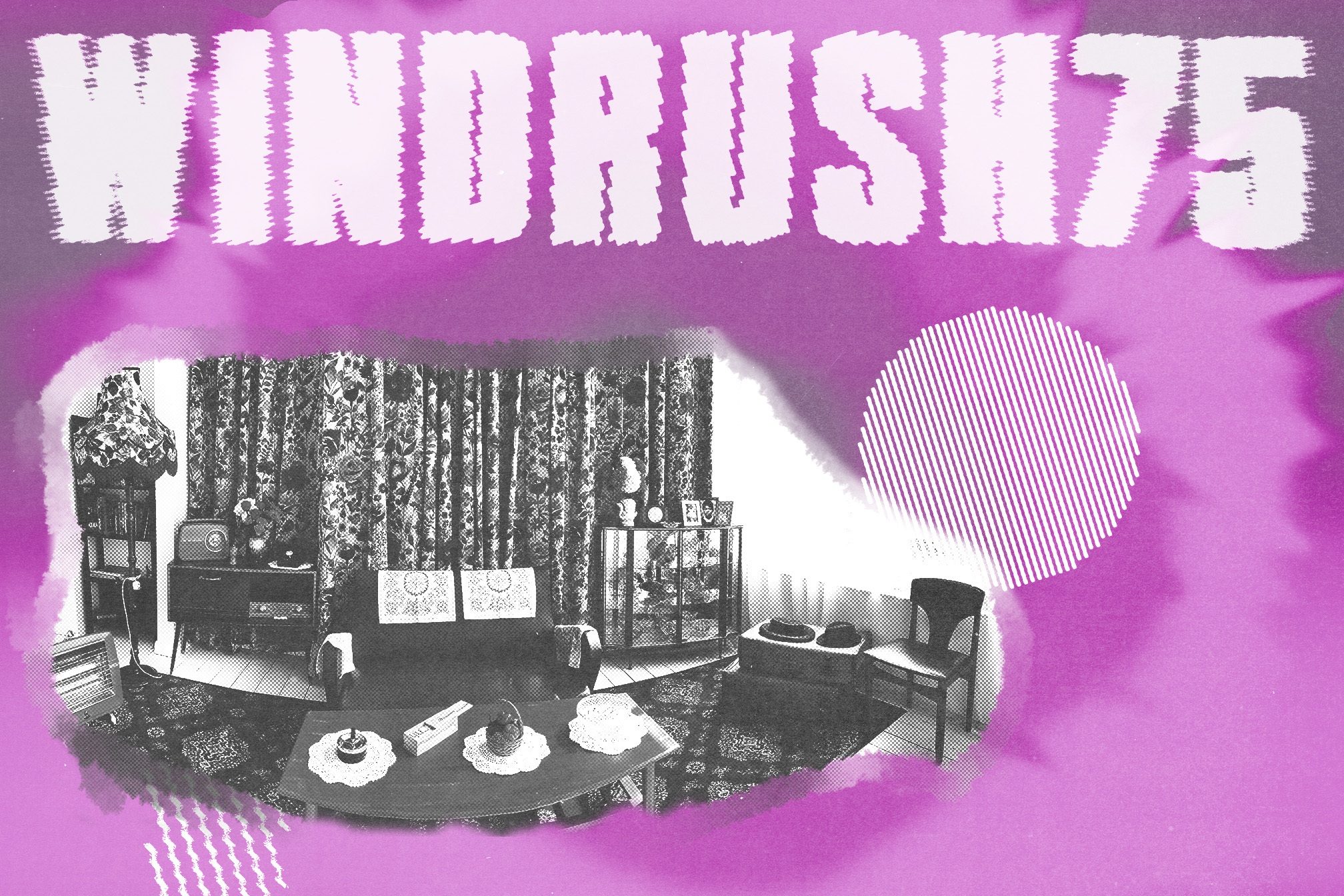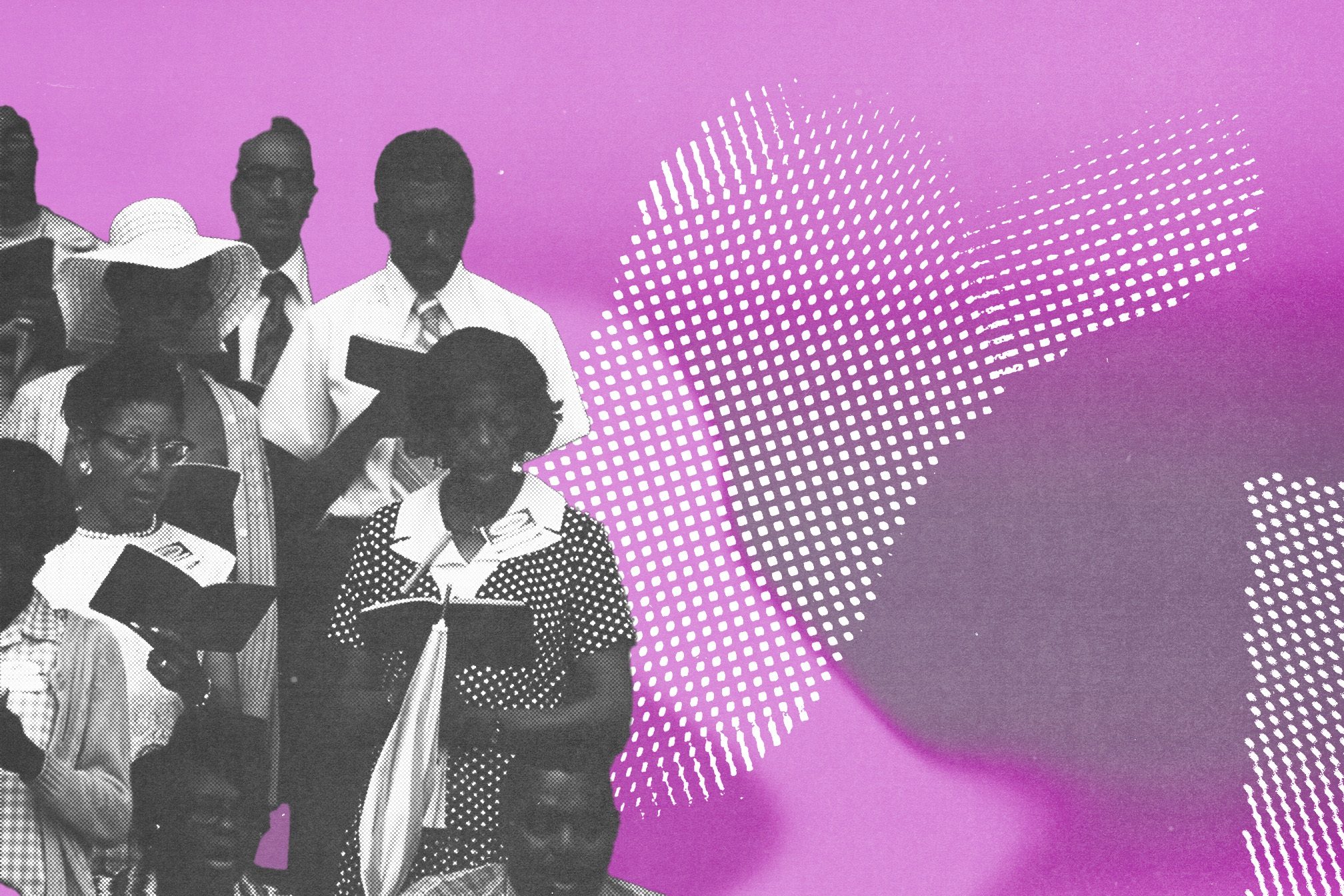 Features
Features
On Sundays, Glorious Sundays, the culture of the Windrush generation came to the fore
Ray Paul reflects on the importance on Sundays for the Windrush generation — a day of music, community, identity and food that connected multiple generations to their homelands
Mixmag is running an editorial series to mark the 75th anniversary of Windrush, find out more here
There are many elements of Caribbean life that distinguish people who originate from the different islands, and there are so many that unite them.
If you are reading this and were born as a first generation Black Briton to parents who came over as part of the Windrush generation, I’m pretty confident some of these elements will resonate with you:
The 'Gram – yes, we had one too – only ours wasn’t “Insta”, it was where your parents (and only your parents) played their records.
The glass fish ornament
The religious picture on the wall
The living room “doileys”
The lack of opportunity to sit in the living room when “big people” were talking (yes, free movement wasn’t really a thing back then…)
The importance of Sundays in the household.
Read this next: Why the radiogram is a sacred piece of music technology
The memories came flooding back after visiting an excellent Windrush commemoration installation in Camden, North London, that re-created the classic ‘front room’ of the ’60s and ’70s of people who came to Britain as part of the Windrush generation.
Pride and excellence were two actions and emotions that filtered through every West Indian household at that time. Everything had to be done in a certain way, and you definitely didn’t want to be the one that let the side down.
This was demonstrated none more so that attitude towards the Sabbath. Sundays were all about excellence, family, togetherness and pride.
I mention pride repeatedly because as a young child I got to witness my parents' culture come to the fore on a Sunday without any shame or apology. This was their opportunity to feel back at home (usually without the burden of having to go to work), and family was central to this.
As a youngster who had an ever-changing and very fluid relationship with my own identity, Sundays were vital. It plugged me back into the energy source which helped me develop the knowledge of where I was from and ultimately played a key role in shaping who I am today.

Sundays started with going to church. The notion of giving thanks and being grateful for what you have laid the foundations for many Caribbean families. It was important to look your best – freshly ironed shirt, razor sharp seam in your trousers and polished shoes. These, combined with your best manners in public, were expected to be displayed weekly.
The role of music on a Sunday was absolutely vital. It allowed our parents to reconnect with their homeland by blasting out the big memorable hits from home, evoking memories of yester-year for them, and introducing the next generation to the sound of the Caribbean. Whether that was calypso from The Mighty Sparrow or Lord Kitchener, or Cadance catering for the French region of the Caribbean (which was my experience with my background from St Lucia), or even the likes of John Holt or Desmond Dekker (as many Jamaicans would have experienced), this subconsciously started the journey for youngsters who were within earshot of the music. It wasn’t just about the tracks themselves, but how the culture from home was soaked and deeply embedded into the music, how it represented your heritage and what made you.
This was coupled with the X factor that complements the sound of the music, and something everyone loves – food! The aromas from the kitchen, and the particular precision that was taken in getting those homemade dishes “just right” proved to be the binding element.
The backdrop to the food prep was music. It was seen as the ingredient that couldn’t be measured. Unless you lived through that period it is hard to imagine that there were only one or two Black music programmes on the radio all week, TV didn’t play Black music videos, and you relied on the trusty community stations who came from, and knew and catered for, their audiences up and down the country. Without the endeavours of these broadcasters and DJs we wouldn’t have the Kiss FMs, Capital Xtras or 1Xtras today.
Read this next: Why dancehall isn't a major industry in the UK, and what needs to be done
Demand for the music has always outweighed the supply, but it seems Black music and its representatives didn’t have a seat at the table in those days. As generations have moved on it is incredible to see how the music has morphed and grown, and as I write this the two biggest streaming singles in the UK are both Black music tracks. Progress indeed.
Music, community, identity (and food!) equalled Sundays and laid the foundations for the new generation to feel at home when sometimes the notion of home and identity could be confusing to a young Black person in the UK. It was a time for stillness, and a “reset” from the week just gone alongside an anticipation for the week ahead.
My dad played a pivotal role in developing my love for music. Each Thursday on payday he would take a seven-year-old me to the local record shop with the mission of getting that one killer record. Every week I could select one – just one – and have to justify why I selected it; what was it about the song that drew me into that track? The test run of the record on the ‘Gram came on Sunday afternoon – would my selection meet with the approval of my three older sisters? Or would it fail dismally and would I have to step aside for the more experienced and knowledgeable selections from my dad? Thankfully for the majority of times I was successful…
One thing that those litmus test situations gave me was a rock solid appreciation of music – real music – from any background. Many people don’t know but a Sunday morning in the Caribbean can musically range from country and western to middle of the road pop (think Jim Reeves to Celine Dion). This extended my musical palette more than I realised at the time, and I’m sure anyone who grew up in a similar household would say the same.
Sundays taught us Black British youngsters a lot. For me as a young West Londoner the messages from my parents were clear – plot your own path in the UK, you have more opportunity than we ever had, but never forget who you are or where you come from. Sundays played a vital role in me never forgetting, and the music that soaked into my soul from those early days significantly contributed to me falling in love with music from the Caribbean, and helped me to continue that passion for my 30-plus-year career to date.
I couldn’t imagine having an upbringing that didn’t involve this magic formula as it enriched the lives of a whole generation and I wish the generations that followed had the chance to experience cultural purity in this form.
Ray Paul is the creative director of The Playmaker Group, who specialise in award winning content, tour management and event curation & Caribbean culture agency BrukOut


